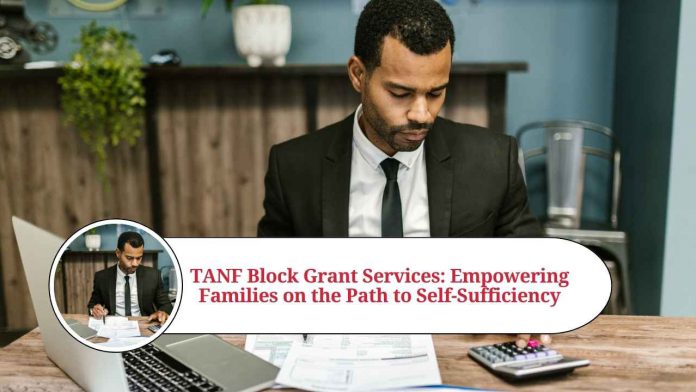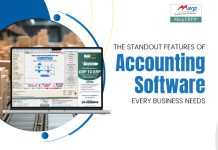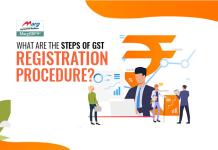Introduction:
In an effort to combat poverty and provide assistance to families in need, the United States government implemented the Temporary Assistance for Needy Families (TANF) program. Established in 1996, TANF offers a range of block grant services to low-income families, focusing on providing temporary financial assistance, promoting work readiness, and supporting self-sufficiency. This blog post delves into the TANF block grant services, their objectives, and the impact they have on the lives of vulnerable individuals and families.
Understanding TANF Block Grants:
TANF operates through a block grant system, which provides states with flexible funding to design and implement programs that meet the unique needs of their populations. The block grants are allocated to each state based on a formula that takes into account factors like population and income levels. This structure empowers states to create tailored programs that address the specific challenges faced by families in their jurisdictions.
Temporary Financial Assistance:
One of the primary objectives of TANF block grants is to provide temporary financial assistance to eligible families. This assistance comes in the form of cash benefits, which can be used to cover essential needs such as rent, utilities, and food. The duration and amount of benefits vary by state, and states have the flexibility to set their own eligibility criteria, taking into account local cost of living and other factors.
Work Requirements and Employment Support:
TANF places a strong emphasis on work readiness and self-sufficiency. To receive assistance, most adult recipients are required to engage in work-related activities, such as job training, education, or employment. The program offers a range of employment support services, including job placement assistance, vocational training, and access to childcare subsidies. These initiatives aim to equip individuals with the necessary skills and resources to secure stable employment and achieve financial independence.
Supportive Services:
TANF recognizes that individuals and families face various barriers to self-sufficiency. To address these challenges comprehensively, the program offers a range of supportive services. These may include access to affordable healthcare, transportation assistance, substance abuse counseling, mental health services, and parenting classes. By addressing underlying issues that hinder progress, TANF helps families build a solid foundation for long-term success.
Promoting Family Stability:
Another crucial aspect of TANF block grant services is the promotion of family stability. The program recognizes the importance of strong family structures and provides resources to help parents fulfill their roles effectively. Parenting classes, counseling, and family support services are offered to assist families in overcoming difficulties and building nurturing environments for their children. By investing in family stability, TANF helps break the cycle of poverty and create a brighter future for generations to come.
Accountability and Outcomes:
States receiving TANF block grants are required to meet specific performance standards and outcomes. They must demonstrate progress in areas such as employment rates, reduction of dependency, and child well-being. This accountability framework ensures that the funds are utilized effectively and that states remain focused on the ultimate goal of empowering families and promoting self-sufficiency.
Conclusion:
The TANF block grant services play a vital role in supporting low-income families and individuals on their path towards self-sufficiency. By providing temporary financial assistance, promoting work readiness, and offering an array of supportive services, TANF addresses the multifaceted challenges faced by vulnerable populations. While there is always room for improvement, the program has been instrumental in helping millions of families overcome poverty and achieve a more stable and prosperous future. With continued dedication and innovation, TANF has the potential to uplift even more lives and contribute to a stronger, more equitable society.
Read More Useful Content:
- Top Benefits of E-Invoicing Software For Your Business
- Best e-Invoicing Software to Simplify Your GST e-Invoicing
- E-invoicing – Guide On E-Invoicing System In India
Frequently Asked Questions (FAQs)
What is TANF and what does it stand for?
TANF stands for Temporary Assistance for Needy Families. It is a federal assistance program that provides temporary financial support and other services to low-income families with children.
Who is eligible to receive TANF benefits?
Eligibility for TANF benefits varies by state, but generally, low-income families with dependent children, including pregnant women, may qualify for assistance. Income and resource limits, as well as other factors, determine eligibility.
How long can a family receive TANF assistance?
The duration of TANF benefits varies by state. Some states impose time limits, typically ranging from 60 to 72 months, while others have more flexible policies based on individual circumstances.
What types of services are offered through TANF block grants?
TANF block grants support a variety of services, including temporary cash assistance, job training, employment placement, childcare assistance, transportation support, healthcare access, substance abuse counseling, mental health services, and parenting classes.
How does TANF encourage self-sufficiency?
TANF promotes self-sufficiency by requiring most adult recipients to participate in work-related activities, such as job training, education, or employment. By focusing on work readiness and providing supportive services, TANF aims to help families become economically independent.
Can TANF recipients access healthcare services?
Yes, TANF recipients may have access to healthcare services through Medicaid or other state-specific healthcare programs. Eligibility for healthcare services is determined separately from TANF cash assistance.
Are TANF benefits taxable income?
No, TANF benefits are generally not considered taxable income. However, it’s important to consult with a tax professional to determine if any exceptions apply based on individual circumstances.
Can TANF assistance be used for any purpose?
TANF assistance is intended to cover essential needs, such as rent, utilities, and food. However, states have flexibility in determining how funds can be used within federal guidelines, and some may offer additional services like education or job training.
What is the role of states in implementing TANF block grant services?
States have significant control over TANF programs and services. They receive federal block grants and have the authority to design and administer their own programs, tailoring them to meet the specific needs of their populations.
How is TANF program performance measured?
States receiving TANF funds are held accountable for achieving specific performance standards and outcomes. These measures include employment rates, reduction of dependency, child well-being, and other factors, ensuring that the program is effectively helping families and producing positive outcomes.




















